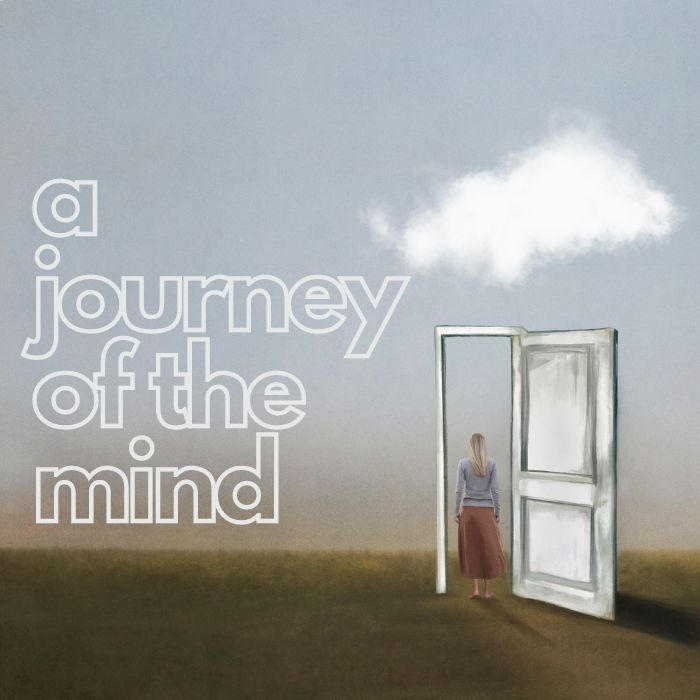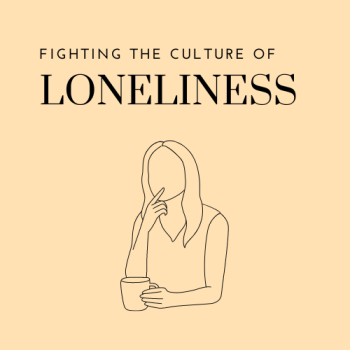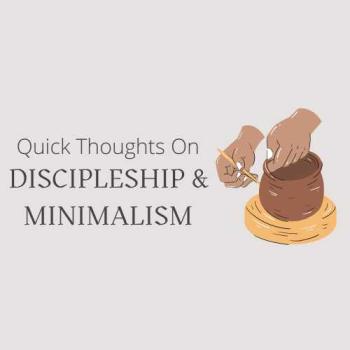
“That night my imagination was, in a certain sense, baptized; the rest of me, not unnaturally, took longer.” – C.S. Lewis, Surprised By Joy
Growing up, I lived in my imagination.
Although few people knew it, I would spend hours in my mind imagining stories that were fully equipped with characters, plotlines (and plot twists!), action sequences, vivid settings, and more. Sometimes I would be aided by action figures and Legos, but more often I was simply staring out the window of the car or throwing a ball in the backyard.
Wherever my body was, it didn’t matter, my imagination had brought me somewhere else.
Eventually I would begin to write the tales of my imagination down onto paper, but for many years they existed only in my mind: a world I could retreat to and find contentment in, no matter what the reality around me. Like a muscle, the constant creating of stories strengthened my imagination to the point where even today it takes very little effort to imagine vivid worlds and characters in my mind. It’s actually why I enjoy reading stories far more than watching movies or shows: when I read, I can see, feel, smell, and taste the world in far more detail than any images on a screen could ever do.
This power of imagination can bring me to my highest highs, and yet also my lowest lows, all depending on where my imagination takes me.
Oh, The Places I’ve Gone
I think here it would be easy to say something to the effect of, “Within the confines of stories, I’ve been to mountains on other planets and inside enchanted forests!” I can, in fact, remember PBS Kids commercials saying something to that effect.
And I suppose that’s true, in a sense.
But I want to challenge us to consider our imaginations as far more vital to the lives we live than just providing fictitious escapism. More than taking us to other worlds, our imagination helps us process our world. And I don’t mean just planet earth and society at large, I mean more concretely that our imaginations help us process and interpret the lives we are living.
Our lives.
When we daydream about our spouse, what comes to mind will deeply influence our marriages. Do we imagine that our spouse is away being unfaithful, or do we imagine our spouse is doing the grocery shopping, and maybe even buying a little extra for the homeless person outside? Whatever we imagine will deeply influence how we naturally react when they return home, won’t it?
Imagination itself is a net neutral, neither good nor bad, but its effect on us can be either a great blessing or a curse.
My strong imagination has been a blessing in my work, for example, helping with strategic planning, casting vision, and developing empathy. Outside of work, in the confines of my spiritual journey with Jesus, my imagination has become one of the most beautiful elements of my life, helping me imagine how Jesus may act, and then following suit.
Yet throughout my teens, my vivid imagination was much more a mixed bag.
I often imagined that the world outside was dangerous, and that I needed to protect myself from it. It may sound silly, but growing up post-9/11 in an America that was perpetually at war, and with an imagination fueled by action films and news… what was my teenage mind supposed to think?
My mind often found dark places to wander in those years. Reenacting my own versions of violent action sequences that I’d seen in movies and video games. It created anxiety within me, and fear, and brought me to a place of wanting to be able to protect myself from all those “evil” people “out there”.
Oh, the dark places my mind has been.
But… there have been light places too. Wonderful places that, in an imperfect way, should remind us of God’s kingdom.
The Building Blocks of a Kingdom
Like many, action and war movies gave my imagination tools and reference points to conjure up my own gory scenes. These movies (and later video games) gave my mind the materials it needed to assemble its own perception of reality.
That was until something changed.
You see, throughout my late teens I was dragged over and over again to the local mega-church by my older sister. Every one of the sermons was directed back to the Gospel, of a life that followed Jesus and repented of sins. I didn’t really know it at the time, but those evangelical sermons were planting little seeds in my imagination of what could be and what should be. Then, in a season of incredibly deep depression and defeat, I picked up Lee Strobel’s A Case for Christ, which gave my mind a reality to hold onto.
It was something like what C.S. Lewis experienced when he wrote, “my imagination was, in a certain sense, baptized” (Surprised by Joy). Here Lewis tells the tale of first being exposed to the work of George MacDonald, a Christian author of the mid-to-late 1800s who greatly influenced Lewis. Lewis proposes the idea that his imagination was introduced to the splendor and glory of God through MacDonald’s work Phantastes even before Lewis had committed to following Jesus.
That’s what those sermons and Strobel’s book were like for me: dipping my vivid imagination into the Kingdom of God, if only just for a moment. It’s how I imagine some of Jesus’ audience felt when he told them parables, giving them an image of the Kingdom that was there amongst them in the form of Jesus.
Imagine, for example, the famous Parable of the Prodigal Son. You can read the story in Luke’s Gospel, but a summary would be that there were two brothers, one of whom wanted to take his inheritance early so that he could go engage in “wild living”. When he was broke and desperate, he decided to go back home and beg his father for work as a servant. His father, however, was joyful to see his boy again. He forgives his son and throws a party. The older son, however, is angry and accuses his father of being radically unfair. The father replies “My son […] you are always with me, and everything I have is yours. But we had to celebrate and be glad, because this brother of yours was dead and is alive again; he was lost and is found” (Luke 12: 31-32).
Jesus is radically changing the script for his Jewish audience. Through this story he’s helping the people see that they could repent and turn to the Lord and be received back into the kingdom with gladness, while the Pharisees (who are like the older brother) stand outside the father’s home despite their outward righteousness.
Over and over again Jesus flips the script on the Jewish understanding of the Kingdom of God, and primarily through story. He is, I propose, speaking a vision of what could be and what should be into the imagination of his listeners.
Using those creative words of C.S. Lewis, perhaps Jesus was (in a certain sense) “baptizing” the imaginations of his listeners.
The Crux
The thing is, our imaginations will stay at work, shaping for us our understanding of reality. It may, at times, feel that we have little to no say in the process. Daydreams, for example, often seem to find us versus us intentionally conjuring them up. How much more so those imaginings that happen even deeper in our subconscious?
As we discussed before, our imaginations are net neutrals. They simply produce what they’re given.
Perhaps this is the epitome of “garbage in, garbage out”.
Christians, especially in the West, have recently come to a place in which we feel that we have no “Media Responsibility”, as I like to call it. That is, we do not see a connection between the media we consume and the lives we live as believers. We think that all music, movies, video games, social media, etc. is fine because, even though we’re watching someone taking human life and we’re enjoying the “art” of the film… we aren’t actually committing murder.
And that’s true… sort of. Paul actually addresses this in his letter to the church at Corinth. He writes, “All things are permitted for me, but not all things are of benefit. All things are permitted for me, but I will not be mastered by anything,” (1 Corinthians 6:12).
Yet, the context of this verse is interesting. Although admitting that believers are not under the old Law, Paul goes on to exhort the believers to live a pure life. In fact, he would say over and over through his letters that “the unrighteous will not inherit the Kingdom of God” (1 Corinthians 6:9, Ephesians 5:5, Galatians 5: 19-20). And what we ponder in our heart, in our imaginations, matter. Jesus says that hatred in our heart makes us guilty of murder, and lust makes us guilty of adultery (see Matthew 5).
Paul is calling us not to use our freedom in Christ to justify our sin, even sin in our thought life, but instead as motivation to “renew our mind” and imagination.
And how we do that is what our next series of columns, is all about.
For more content like this, check out the Living Room Disciple Podcast here, or check out our website.













